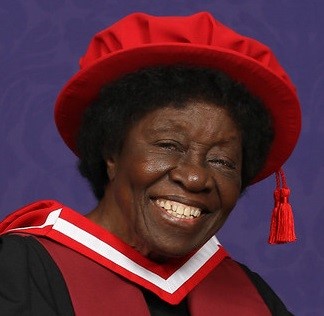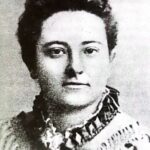
Letitia Eva Takyibea Obeng (January 10, 1925 – March 23, 2023) a pioneering Ghanaian scientist who achieved a remarkable career in her field, broke down gender barriers, and made significant contributions to the advancement of science in Ghana and beyond. She was the first female scientist in Ghana, and her contributions to the field of science have had a significant impact on Ghana’s development.
Letitia Eva Takyibea Obeng was born on January 10, 1925 at Anum in the Eastern Region, Gold Coast (now Ghana) and was the fifth of eight children of Rev. Emmanuel Victor sihene, the 13th Moderator of the Presbyterian Church of Ghana and Mrs. Dora Asihene who died when Letitia was only 9.
Letitia started her primary education at Abetifi-Kwahu in the Eastern Region and continued at a middle school in Kyebi also in the Eastern Region. She had her secondary school education at Achimota School, Accra from 1939 to 1946 when she took the London University International Examination since there was no university in the then Gold Coast (now Ghana), those who passed that examination had to continue their university education abroad.
With a government scholarship, she went ahead to pursue a bachelor’s degree in Zoology at the University of Birmingham in the United Kingdom where she was the only African female student studying the programme. Her choice of study was influenced by time spent at her father’s rural farm in Ghana, where she was entranced by the myriad of plants and insects she discovered there. Letitia Obeng was the first Ghanaian female to be awarded a Bachelor of Science in Zoology and Botany (1952) a Master of Science degree in Parasitology (1962) and a PhD from the University of Liverpool’s School of Tropical Medicine (1964). She has been described as “the grandmother of female scientists in Ghana”.
She always found herself in the minority because she was first a woman studying in the field and secondly because she was a black African, but she was not bordered at all. She never thought of the world being a man’s world and that gave her the urge that women could also do what men did and even do it much better if they worked towards it with determination. Being so proud to be an African, Dr Letitia Obeng was always in her native cloth, which she was soo proud of as an African. She recounted her experience in England just before she graduated. As the rule was in those days, all female students of the university of Birmingham had to wear black skirt and white blouse on the day of graduation but the young female African, who was passionate of her native dress managed to get the university authorities to change her dress code for her by writing to the Chancellor’s office asking for permission to wear her native cloth for graduation which they agreed.

Upon her return to Ghana after her studies, she lectured at the University College of Science and Technology now Kwame Nkrumah University of Science and Technology from 1952 to 1959. There she trained many of Ghana’s early pharmacists, agriculturalists, and doctors. She moved on to the National Research Council now Council for Scientific and Industrial Research (CSIR) where she was the first scientist to be recruited.
She went on to establish the Institute of Aquatic Biology for the Ghana Academy of Sciences where she later served as a fellow and the first female president. She co-managed the Volta Research Project where she addressed environmental issues affecting the Volta Lake. In 1974 she began work as an Officer at the United Nations Environment Programme (UNEP) in charge of water and soil, in the Global Environment Programme. She moved on to become the Director of UNEP Regional Office for Africa.
Letitia’s achievements are numerous, and a testament to her determination, intellect, and passion for science. In 1997, she was the first female to be awarded the CSIR Award for Distinguished Career and Service to Science and Technology Award. The CSIR Laboratory was named the Letitia Obeng Block. A meeting room at the Novotel in Liverpool’s Padding Village is also named after her. Letitia was awarded Ghana’s highest honour: Order of the Star of Ghana, in 2006. She was an affiliate member of several organisations and institutions including New York Academy of Sciences, the Stockholm Environment Institute, Africa Leadership Forum, among many others.
Dr. Letitia Obeng died on 23 March 2023, at the age of 98.
EA EDITORS


